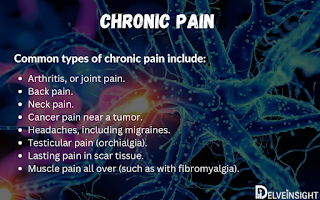MDD and Cultural Complexities in MENA: A Path to Understanding
Mental health is a global concern, and within the Middle East and North Africa (MENA) region, addressing conditions like Major Depressive Disorder (MDD) is a complex endeavor. While significant progress has been made in understanding MDD and developing therapies, navigating cultural nuances and challenges in the MENA region is essential. In this blog, we explore the landscape of MDD, its symptoms, available Major Depressive Disorder therapies, and the cultural complexities that influence mental health in MENA.
Understanding Major Depressive Disorder
MDD is a severe mental health condition characterized by persistent feelings of sadness, hopelessness, and a lack of interest in previously enjoyed activities. It affects millions worldwide, and MENA is no exception.
Symptoms and Treatment Options
Recognizing the Major Depressive Disorder symptoms is the first step to providing proper care. These may include a persistent low mood, changes in appetite or sleep patterns, fatigue, and diminished interest in daily life. Fortunately, several therapies and treatment options are available, including psychotherapy, medication, and lifestyle changes, which can be tailored to the individual's needs.
Cultural Complexities in Mental Health
Addressing MDD in the MENA region presents unique challenges. Cultural stigmas surrounding mental health can hinder early diagnosis and Major Depressive Disorder treatment. Additionally, there is a need for culturally sensitive approaches to therapy, acknowledging the impact of religion, family, and social dynamics.
MENA's Journey Towards Mental Health Support
The MENA region is not standing still in the face of these challenges. Initiatives and organizations are working tirelessly to raise awareness, provide accessible mental health services, and reduce the stigma surrounding MDD. Additionally, collaboration with pharmaceutical companies has led to the development of new therapies.
The Way Forward
MDD is a global challenge, and the MENA region is making strides in addressing the complexities it presents. With a greater understanding of the cultural factors influencing mental health, more individuals can receive the support they need. Combating stigma, providing education, and encouraging open conversations about mental health are vital steps in this journey.
In conclusion, navigating Major Depressive Disorder in the MENA region requires not only medical understanding and Major Depressive Disorder treatment options but also a deep appreciation for the cultural complexities that shape perceptions of mental health. As awareness grows and cultural sensitivity in therapy expands, the region is moving towards improved support for individuals affected by MDD. It's a journey that aims to break down barriers, promote mental well-being, and offer hope to those who need it most.
Get More Insights About The Latest Healthcare Innovation and Trends:
Advancing Parkinson’s Disease Care in MENA Region: Unmet Needs and Current Progress
UAE: An Ideal Location for the Pharmaceutical and Medical Device Industry
Mental Health in the MENA Region: Breaking Stigmas and Promoting Well-being
NAFLD/NASH: Rising Prevalence and the Treatment Challenges in the Middle East

.png)


Comments
Post a Comment